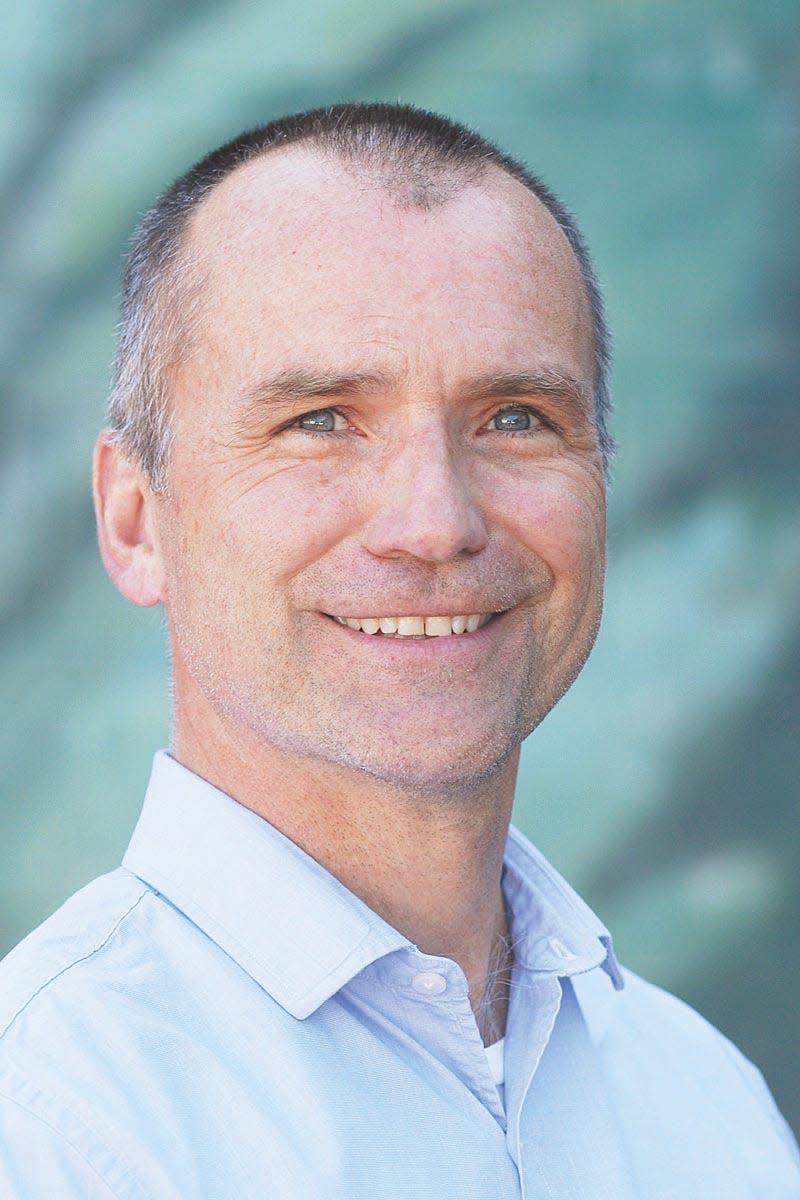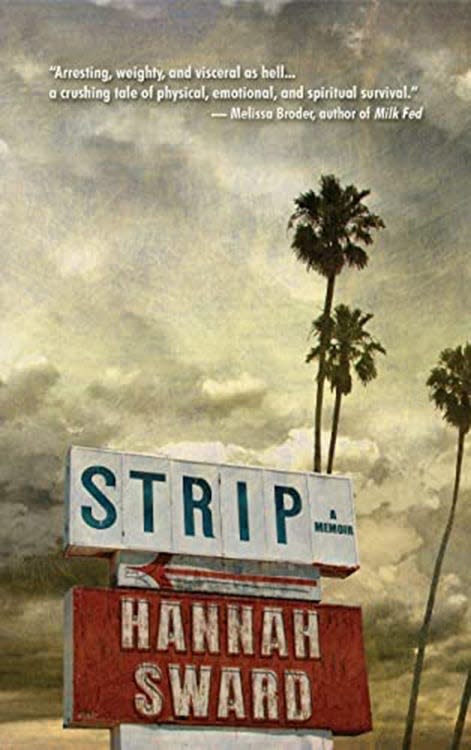Literate Matters: Sward's memoir details climb through abuse and addiction toward hope

I admit to watching as we walked Wilshire Boulevard on a recent California trip for attractive young women passing by in well-fitted business suits. This wasn’t because I was interested in doing business, but because I’d recently read Hannah Sward’s “Strip,” where such attire fits into a critical part of her story.
Sward’s memoir is frank though fraught with the spiral of her work as a Hollywood area escort and her drug abuse. More so, however, is Sward’s honest assessment, as much as a first person account can be objective, of her family’s dysfunction and how she traversed the steep hill of growing up with a poet father who once penned the novel “A Much Married Man” and an often absent mother who regularly visited her boyfriends in prison.
There’s no slow build up here. Sward opens by explaining that her mother disappeared with a sculptor when the author was just two years old.
“She didn’t see me at the window but maybe if she had she would have come back. But she didn’t,” Sward laments. Over the next many years her mother often didn’t see her.

Unfortunately, there were a couple men who did see her, including “the man in the brown car,” and a male babysitter who “likes to play games with clothes off” when she is an adolescent. All of this traumatized Sward and left her vulnerable to further chaos in her life, a recurring thread in the book.
A second, more affirming thread, however, is her bond with her half sister Rilke. The sisters regularly found ways to stay together, going to movie auditions together, as well as working jobs alongside one another. When the pair are unable to stay near one another, like when Rilke moves to New York with her husband, Sward is again adrift, prone to land on old habits.
Ranging from British Columbia to Florida, and then back west to California, the quick snapshots in Sward’s telling find her living with her father the poet Robert Sward and his girlfriends, then all through adolescence bouncing back to her mother and Rilke, even as she spirals first into sex work and addiction.
“My whole life was nothing more than a kind of waiting,” she explains after detailing her mother’s many love affairs and her father’s flirtation with a guru and his cult. There were many women in her father’s life before Alina, the woman he married while following the guru. All the while, young Hannah feels stuck. “Waiting for my mom to come home,” she continues, “even though she never did.”
After leaving home for Chicago, waiting for Rilke to join her, Sward finds a classified ad for escorts, and reasons she “never would have looked at the adult classified section” if she hadn’t “met any men in brown cars or had a guy babysitter.”
Soon she’s working for Mr. Sam, “a thin man, bald with eyebrows that met in the middle,” and running readers through a list of the men she meets as an escort, both in Chicago and later in Los Angeles. The work is emotionally and physically numbing, and she explains more than once, “Nothing about it felt real,” that she was “detached, like I was watching myself play a part in a movie going through the motions.” She adds, “I wasn’t a good actress.” Nonetheless, she played the part, in various places with various men, hoping the waiting would end.
There is more waiting, however, which leads to a meth addiction that only further keeps her stuck in a perpetual state of uncertainty and worse. The silver lining if there is one, appears as she struggles against the meth when she enrolls in community college and rediscovers writing. Soon she steers her energy toward healthier habits and better relationships with both her parents, though the weight of the past is never far away.
I doubt I passed any escorts on Wilshire Boulevard, but I nonetheless discovered at least one version of their tale in “Strip.”
Good reading.
This article originally appeared on The Petoskey News-Review: Literate Matters: Sward's memoir details climb through abuse and addiction toward hope

